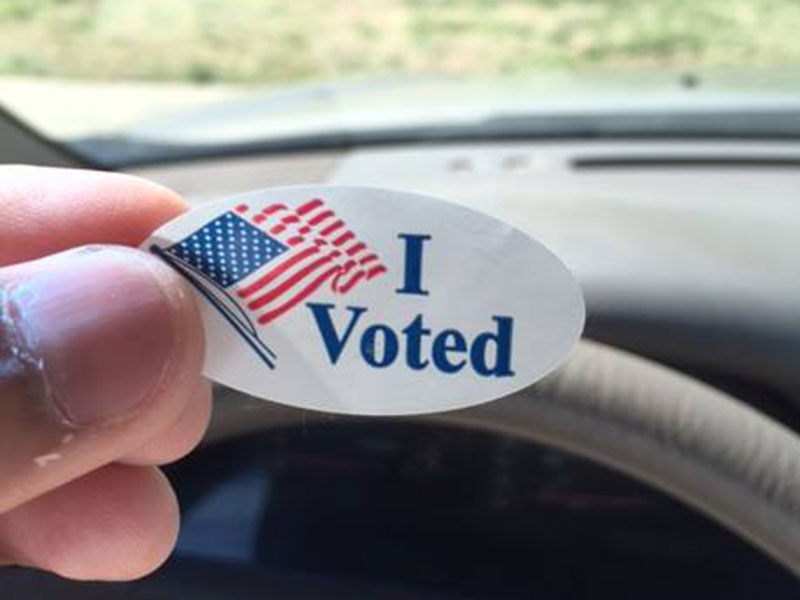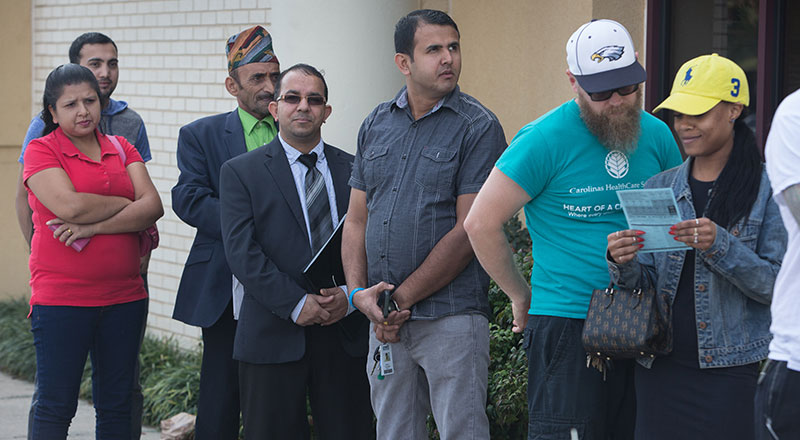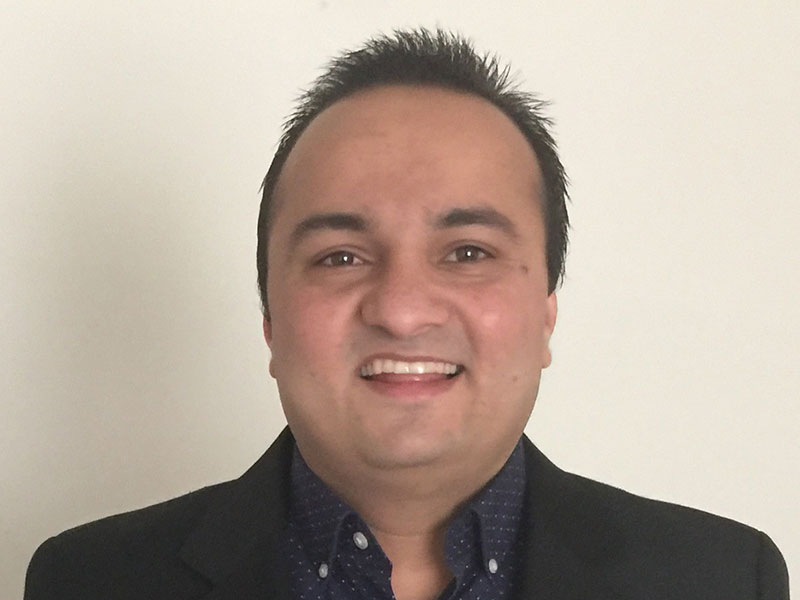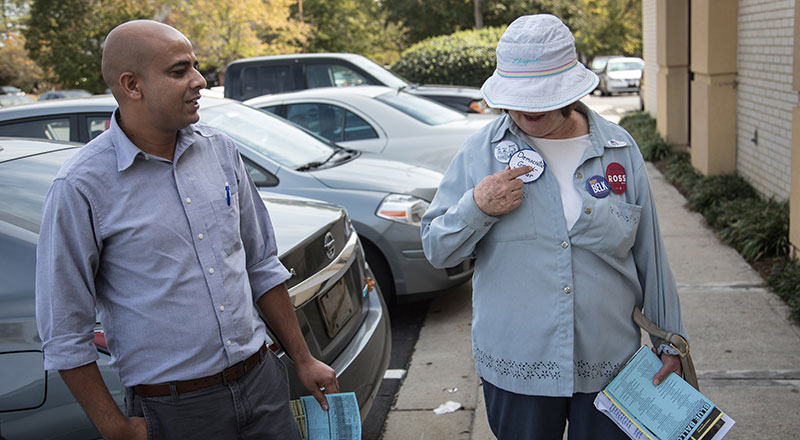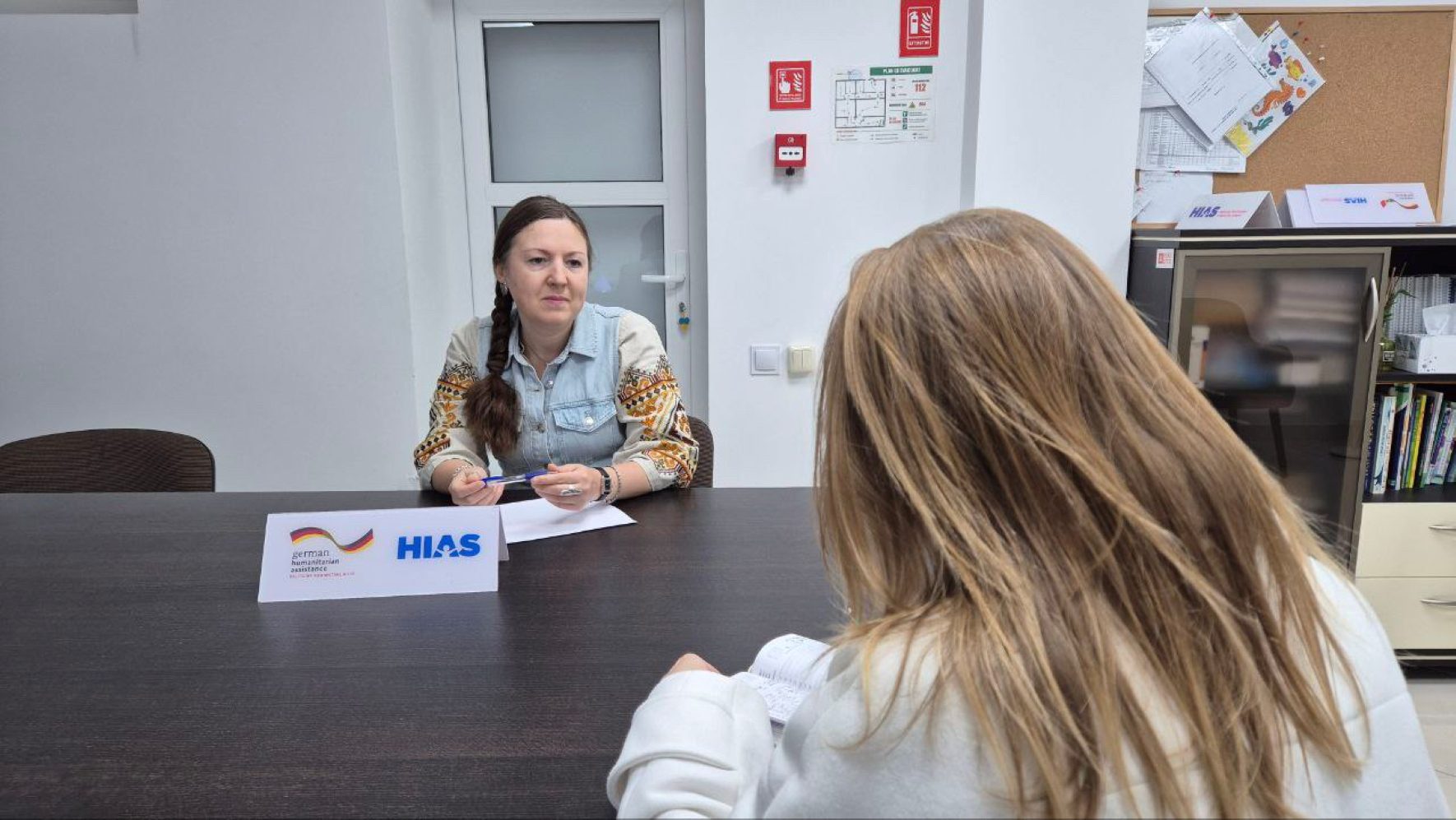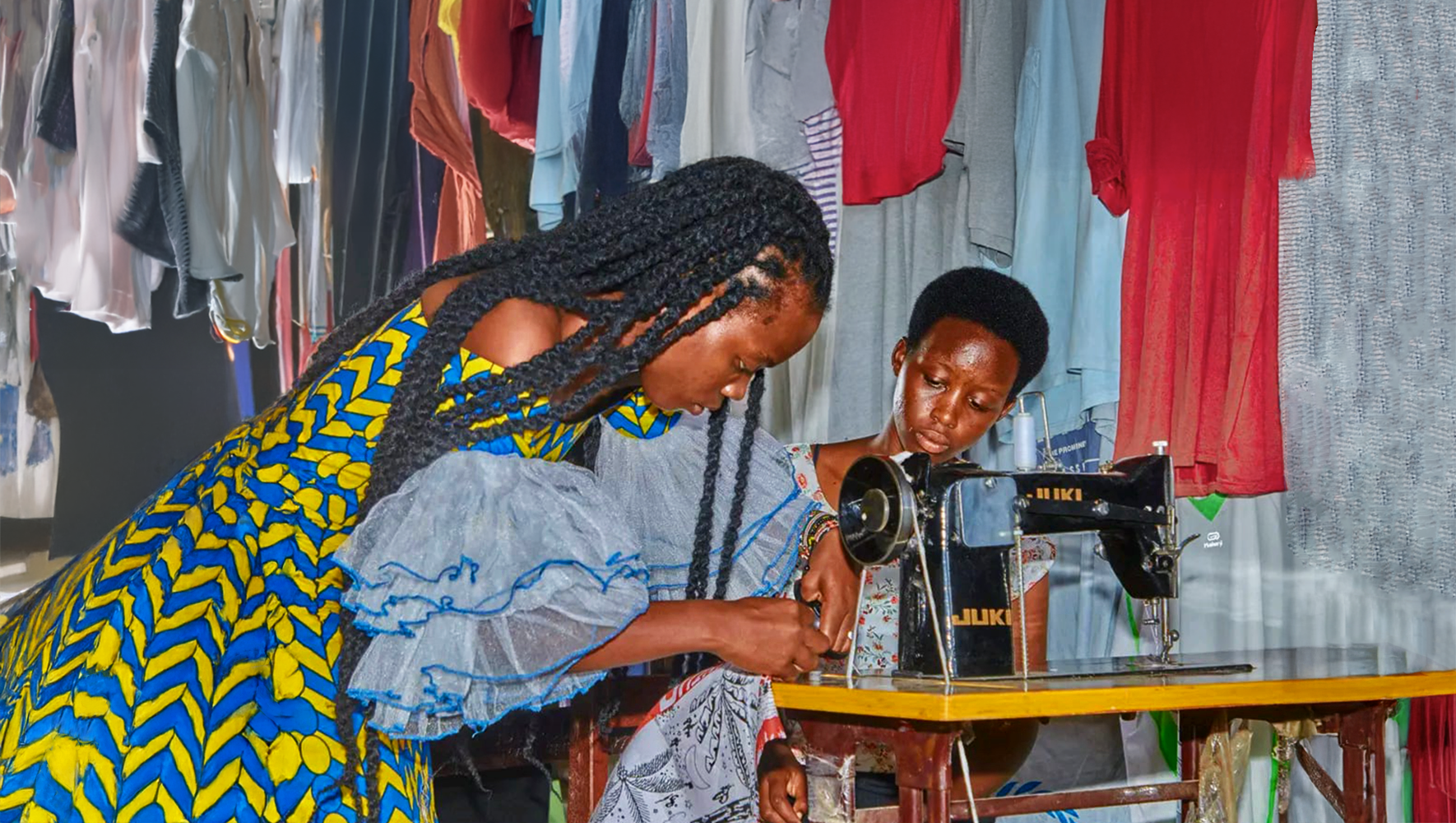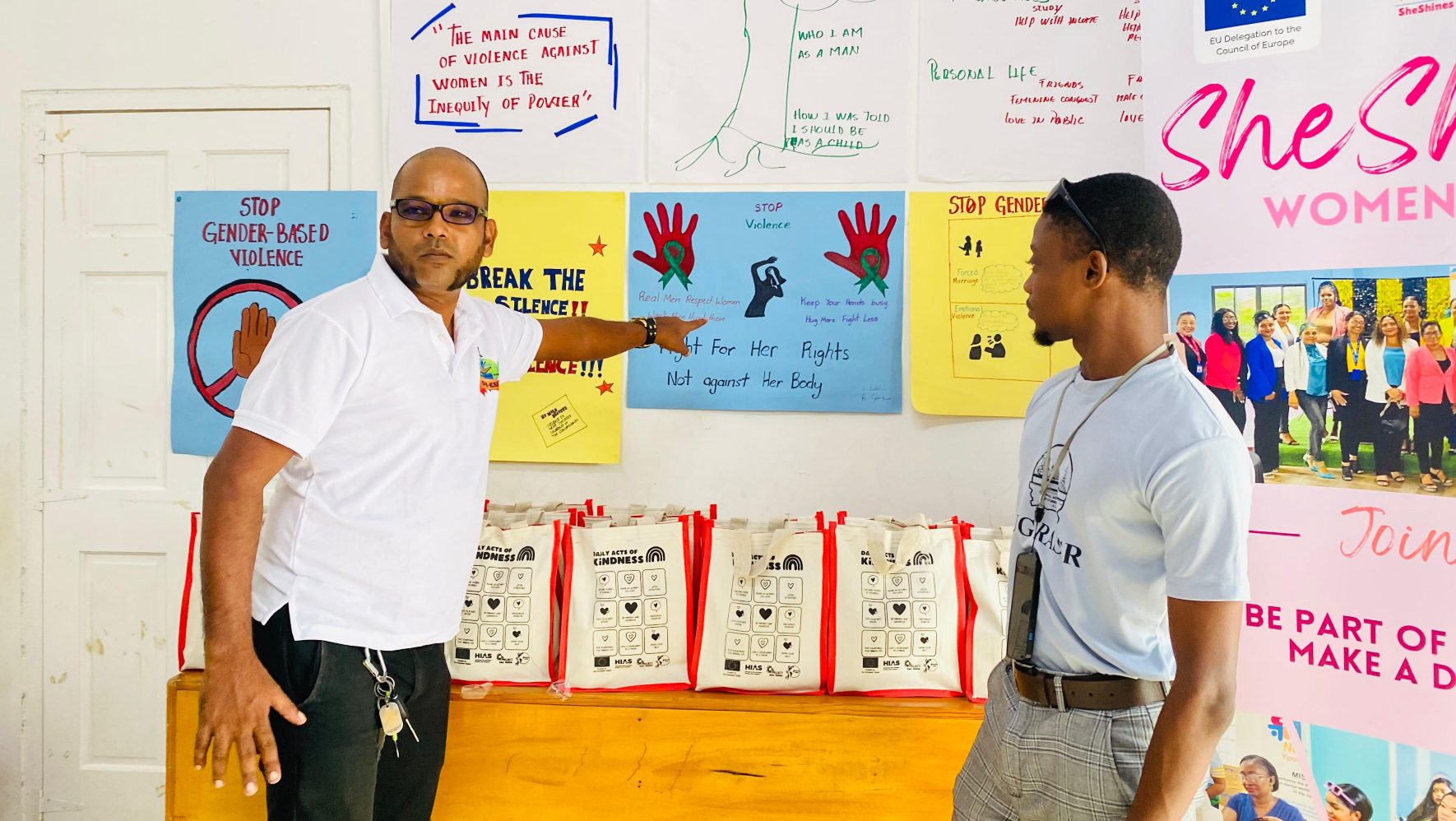Voting for the First Time, Former Refugees Embrace Democracy
By Gabe Cahn, HIAS.org
Nov 04, 2016
“I already told my boss I might be out for a couple of hours on Tuesday,” said Hari Dhimal, an employment specialist at the Carolina Refugee Resettlement Agency.
Like millions of other Americans, Dhimal will head to the polls on Election Day. But when he steps into a North Carolina voting booth, it will not only be his first time voting in a U.S. presidential election—it will be his first time voting, period.
Forced to flee Bhutan because of ethnic persecution, Dhimal came to the United States in 2009 after living as a refugee in Nepal for many years. He became a naturalized American citizen in November 2014 and told HIAS.org that he is filled with “freedom and pride” to be able to participate in our democratic tradition.
Dhimal’s colleague, Thakur Mishra, also came to the United States as a Bhutanese refugee in 2009. He was initially resettled to The Bronx, in New York City but eventually moved to Charlotte, North Carolina to be closer to his family. He now works alongside Dhimal at CRRA, HIAS’ partner in Charlotte, as a health promotion case manager.
After becoming a citizen in 2014, Mishra eagerly voted in the 2014 midterm elections. “This will be my first presidential election,” Mishra told HIAS.org. “Although many people say that one vote doesn’t count, I am a big believer that it does. It counts. By casting a ballot, I can have a say in who will take the highest position in the world. It feels empowering.”
“Being a citizen means that now I have a place to call home,” explained Mishra. “It means I can practice a religion of my choice, without having any fear of being persecuted by my own government. It means that I live in a free world, and I can participate in democracy freely.”
Both Mishra and Dhimal expressed a level of urgency in encouraging all U.S. citizens, especially former refugees, to exercise their right to vote. Mishra has even given his evenings and weekends over to talking to other former refugees about the importance of voting. He sees it as a civic imperative.
“My goal is just to get people out and participating,” he said. “We became refugees in the first place because there was no democratic process, no freedom. So how can you stay in your house and say your vote doesn’t count?”
“This is my country, and I really have to vote,” added Dhimal. “I don’t know whether many people understand how important it is. My wife and I are both ready.”
Both men agreed that which candidate a person votes for is secondary to the privilege of voting in a democratic election, but Dhimal did express his wish for the next president to understand the lengthy and strict system determining which refugees are allowed to be resettled in the United States.
“All the screenings and medical things; I spent a whole year waiting to get a flight,” he said. “There’s a way and a process—it’s not an easy thing.”
Finally, after lauding his quality of life upon arriving in America six years ago and reuniting with his family, Dhimal conceded, “there’s only one thing I can’t do, I can’t become president of this country. Other than that, anything is possible.”
Without missing a beat, he then proudly noted that he and his wife have their first child on the way, and “he might be president one day.”
To read more stories about HIAS' work helping refugees, follow us on Facebook, Twitter and Instagram, and don't forget to sign up to join our e-mail list.
